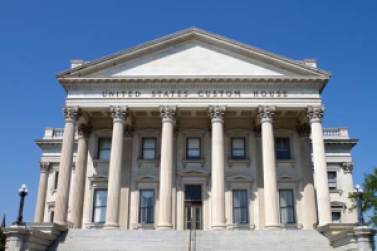Tariffs: Breaking Down Tariffs, Duties, Taxes and Fees

What are tariffs? A tariff is a duty placed on imported goods. There are several types of tariffs and fees that are charged by Customs and Border Protection. The purpose of tariffs is to protect the domestic producers, manufacturers and industries in the U.S. and generate revenue for the government.
What types of tariffs are collected?
There are several ways a tariff, that is to be collected, can be raised, lowered or completely avoided depending on the situation.
- Free Trade Agreements – Tariffs can be greatly reduced or free from certain countries. The FTA approved by the Congress. These agreements are reviewed, updated and renewed by the government when the expiration date of the Free Trade Agreement approaches.
- Quotas – There are two types of quotas, absolute and tariffs rate quotas. Absolute tariffs limit the amount of product that can enter the U.S. Tariff rate quotas raise the tariff cost once the quota has been filled.
- Fees – There are one fee that is always paid on an import shipment except when it is exempt by FTA or low value shipments. This fee is the Merchandise Processing Fee which is .3464% of FOB value. The minimum cost is $25 and the maximum cost is $508.70. Informal shipments (under $2500) pay $2-$9 dollars for MPF.
Harbor Maintenance Fee are paid on shipments that come via ocean. It is charged at a rate of .125%.
Other Fees
Other fees can include: Mango, Avocado, Cotton, Beef, Tea, Pork, Honey, Pecan, Raspberry, Sugar, Potato, Mushroom, Watermelon, and Blueberry
- Excise Tax – Charged on products such as Alcohol and Tobacco. This is a federal tax that is charged whether the product is imported or domestic.
- If an American industry feels that they are being hindered by an overseas country they can present their grievance to the Department of Commerce. The DOC will then open an investigation and review and levy the following types of duties:
Antidumping – This is when an overseas industry undercuts the price of a product. It is impossible to for the U.S. counterpart to compete at that rate structure. Once DOC determines that there is a valid reason to investigate. They will determine how much lower the industry are selling their wares they will levy additional “Antidumping Duties”. The overseas manufacturer can plead their case to the DOC to get lower or completely erase the additional duty.
Countervailing – This is when a foreign industry is subsidized by a foreign government. The DOC will make a determination and add additional duty to protect the U.S. industry.
The case will be closed once the Department of Commerce is satisfied that the overseas industry is compliant. This can take several years.
Avoidance or Delay of Duty Payments
 Avoidance
Avoidance
- Carnet – A carnet can be used in several different countries not just the U.S. It is like a passport for your cargo. A carnet can be used when the cargo is staying short term in the U.S. It is very limited on its capacity. It is mainly used in situations such as Exhibitions, Movie Shoots and Tools of the Trade. No duty is paid. Cargo must be exported in the same state it was imported within one year. It does not require any type of bond.
- Temporary Import Bond – A TIB can stay up until a year. Such examples of TIB cargo is for repair or temporary installation.
Delay
- Foreign Trade Zone – Merchandise can be held in a Foreign Trade Zone for an indefinite amount of time. Only Harbor Maintenance Fees must be paid.
- Bonded Warehouse – Merchandise brought into a Bonded Warehouse must comply with customs and other agencies regulations. It can only stay for 5 years and then must be brought into the commerce of the U.S. or exported.
Recuperation of Duties
- Drawback – Importers who export some, or all their inventory can request reimbursement of the duty via a drawback entry. There are many rules and regulations that must be followed. It is better that this is handled by an SME.
Retaliatory Tariffs
Currently there is a lot of talk in the news about Retaliatory Tariffs. Our governments have levied, on 4 different lists, additional tariffs, above what is currently being paid, on goods from China. Then in turn, China is also leveling additional tariffs on items from the U.S to China. They will negotiate and try to reach an agreement to either lower or end the additional tariffs.